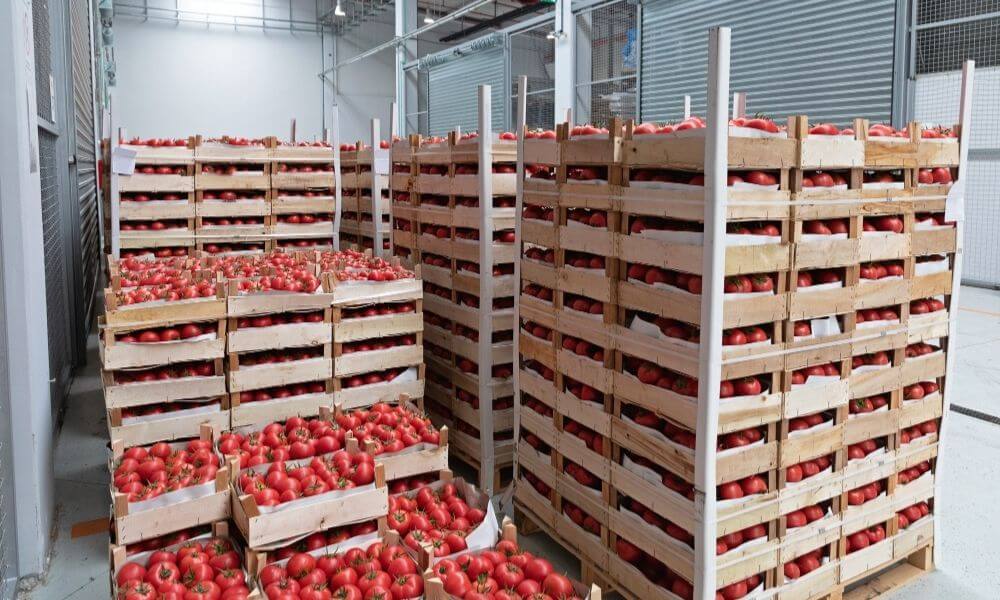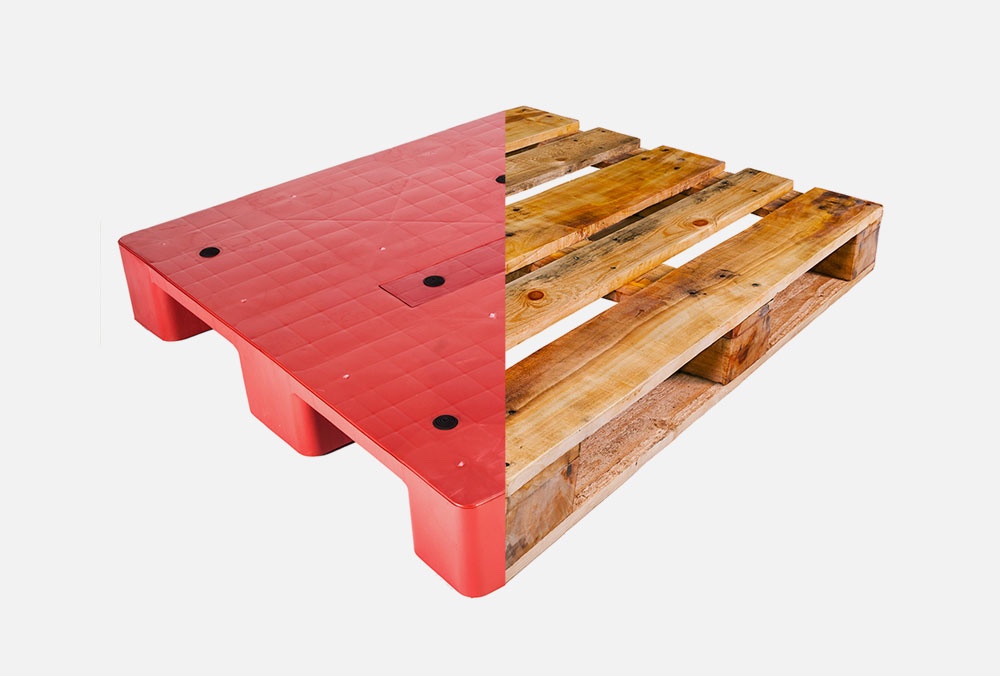When it comes to food, hygiene is always top of mind, both for consumers and food producers. The packaging and transportation of food products are crucial to maintaining cleanliness and safety throughout the supply chain. You might be surprised to learn that wooden pallets are the top choice in the food industry, not only for their affordability and durability but also for their sanitary properties. Since their invention, wooden pallets have been a trusted solution for transporting food, and they remain the go-to option for food producers today. Wondering why wooden pallets are considered safe and reliable for food transport? Let’s dive into the details.
1. Wood is Naturally Safe in Contact with Food
One of the biggest concerns when transporting food is preventing bacterial growth or contamination. Fortunately, clean, dry wood does not create an environment that encourages bacteria to reproduce. In fact, wood has been shown to naturally resist harmful pathogens, meaning it doesn’t pose significant health risks when it comes to bacteria or microbes. Additionally, wood’s porous nature allows it to absorb liquids and contaminants, removing them from the surface. This is a key reason why wooden pallets remain safe for food transport—they don’t allow harmful substances to linger on the surface, unlike some other materials.
2. Contaminants Don’t Stick Around on Wood Surfaces
Pathogens, liquids, and other contaminants that may land on a wooden pallet don’t just sit on the surface; they get absorbed into the wood fibers. This process actually helps keep the surface of the pallet cleaner and safer for food contact. Other materials, like plastic, don’t have this ability, which increases the risk of cross-contamination. With plastic pallets, any bacteria or contaminants that stick to the surface are more likely to transfer to other objects or equipment. This natural property of wood adds an extra layer of safety when transporting food, as the risk of spreading harmful substances is minimized.
3. Wood Pallets Can Be Easily Sterilized
Keeping pallets clean is essential in the food industry, and wooden pallets can be sterilized easily and cost-effectively. Food producers often opt for heat-treated wooden pallets, which are guaranteed to be free of contaminants, pests, and any harmful organisms. Kiln drying is another common process used to eliminate moisture from wood, reducing the chance of mold growth. These sanitizing treatments ensure that wooden pallets meet the strict hygiene standards required for food transport, making them a reliable option for producers and distributors alike.
4. High-Quality Wooden Pallets Protect Packaging
Damaged packaging is a serious concern in the food industry because it can expose products to contaminants. Fortunately, high-quality wooden pallets from reputable suppliers are designed to protect food packaging. When you use well-made wooden pallets, the risk of puncturing or damaging packaging is significantly reduced, keeping the food safe and secure throughout the shipping process. By choosing pallets that meet industry standards for quality and performance, food producers can confidently transport their products without worrying about damage or contamination.
5. Wooden Pallets Are Built to Meet Industry Standards
Not all pallets are created equal, but when they’re built to meet industry specifications, wooden pallets are both reliable and durable. Pallets that adhere to these standards have low failure rates and can withstand the stress of transporting heavy loads without damaging food products or their packaging. The food industry has strict requirements for hygiene and safety, and wooden pallets that are built to these specifications are designed to perform well in these conditions. With the right supplier, you can ensure that your pallets are up to the task.
Need advice on the best wood species for your pallets? Reach out to Geo Pallet Ltd. today for expert guidance!




